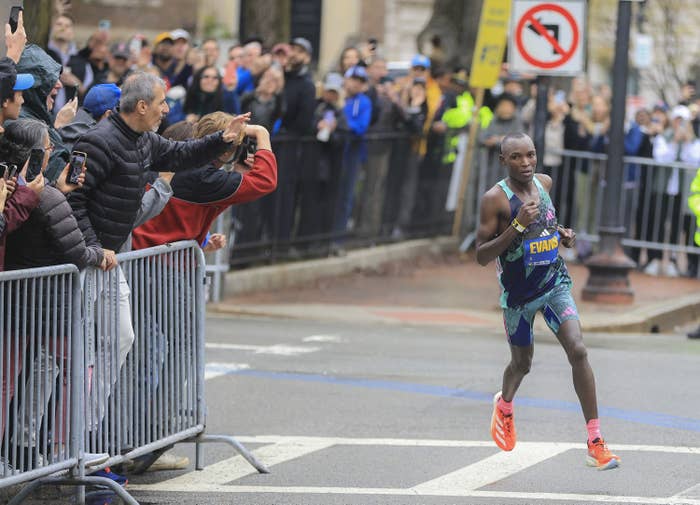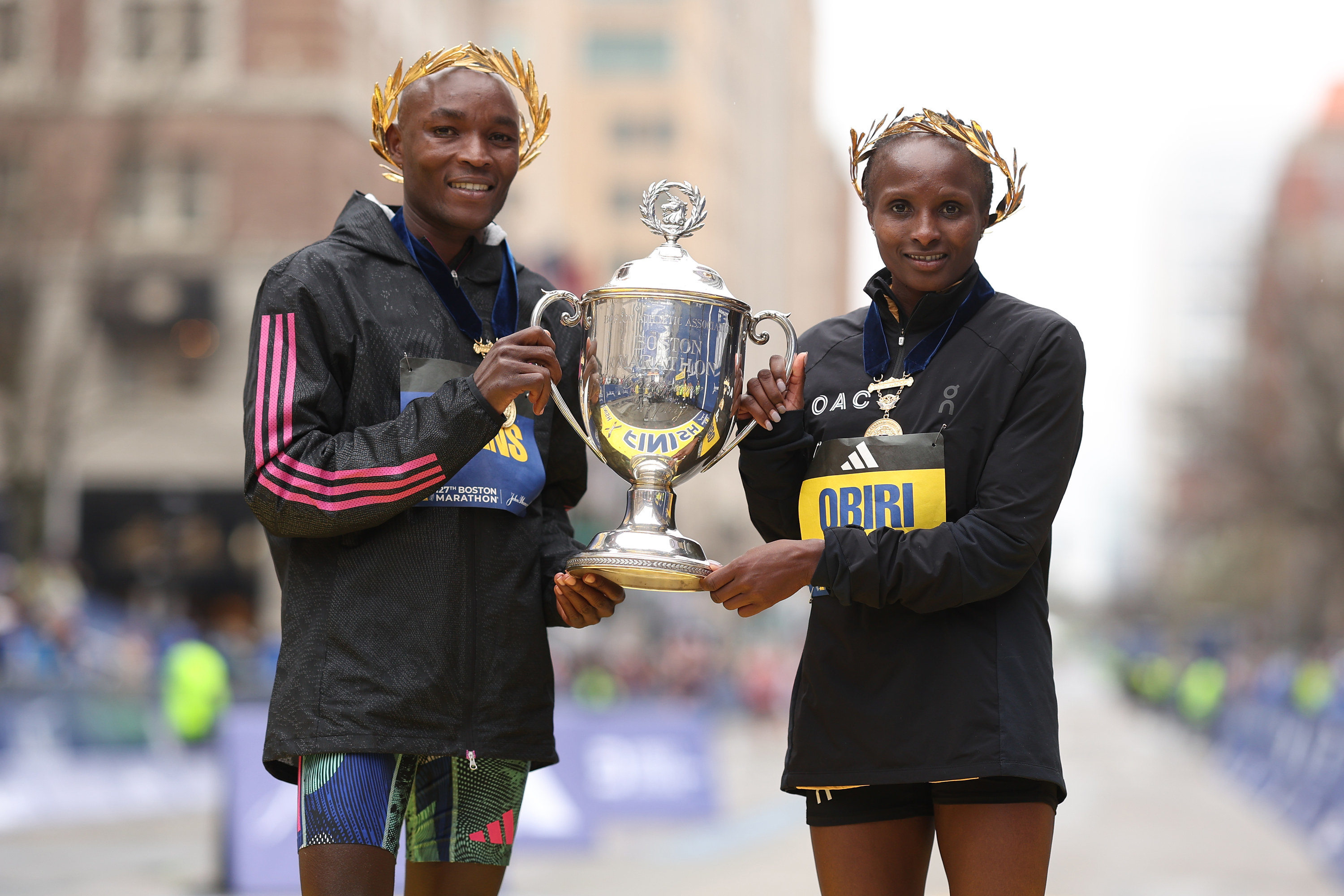
For Massachusetts running club Pioneers Run Crew, the third Monday of April is a day of celebration: If you’re not running, then you’re cheering those taking on the Boston Marathon.
Pioneers Run Crew member Mike Remy, 39, told BuzzFeed News that their cheer zone was set up to support runners as they hit the notoriously difficult 21st mile of their 26.2-mile trek. Organizers got a grill and a DJ to spin tracks, as people came to catch a glimpse of their friends, dance, and perhaps give a high five to an oncoming runner.
So when the police pulled up to their cheer squad around noon, Remy said he wasn’t sure what they were doing wrong. “It felt like a traffic stop,” he said. “There was one cop on a bike kind of cruising back and forth. After doing about four passes, he came back with some friends.”
In Instagram videos now being reposted by fellow runners and marathon fans, many called out the disproportionate and racist policing, as the mainly Black run crew was encircled by more than 12 police officers, barricading them in from the street and watching them from behind on motorcycles.
“There just aren't a lot of Black and brown people into the sport,” Remy said. “It just doesn't feel like a coincidence that the cheer zone that was policed is the cheer zone that was organized by Black and brown people.”
Thousands of people online shared their frustration at the police response. “I had runners legit crying and telling me thank you for the support… only to have the police show up, line up blocking the cheer zone, and then tell me that ill be in hand cuffs in short order,” one user commented. “Disappointing. Triggering. Not okay. This moment wrecked the vibe of something truly celebratory and beautiful,” another wrote.
As one of the World Marathon Majors, the Boston Marathon has historically attracted fanfare alongside the run, as people dole out water or snacks, yell encouragement, and provide support for the participants.
Cheer squad member Asia Rawls, 32, said she felt “upset” when the police began arriving. “We didn't hand out anything, not even a bottle of water,” she said. “We didn't hand out beer or alcohol. It was just simply happiness.”
Rawls overheard one of the officers telling an onlooker: “You're gonna get arrested if you don't do what I say.”
As the officers formed what Remy described as a “human barricade,” he said they did not offer any answers as to what the crew was doing wrong. “They were not really giving much of an explanation of what went wrong, what rule was violated or whatever,” he said. “All I heard was that they said there was an incident, and now they’re here.”
Police from the Metropolitan Law Enforcement Council, who had officers dispatched to Mile 21, did not immediately return BuzzFeed News’ request for comment.
Running While Black author Alison Mariella Désir told BuzzFeed News that this situation is not new. Désir was at the same Pioneers Run Crew station last year and also experienced disproportionate policing, after officers were called while they were cheering runners on.
“Yesterday was supposed to be a celebration,” Désir said. “But running exists in the same context of this country in this world which is rooted in white supremacy. So we have to intentionally address the way that it shows up.”
This situation also comes days after Ralph Yarl, the 16-year-old Black teenager who was allegedly shot in the head by a white homeowner on Thursday after he went to the wrong home to pick up his siblings. Désir said her first reaction to the viral Instagram posts about the police interactions was one of “deep fear.” “I wondered if somebody was shot or detained,” she said. “And then as a mother, I thought, Thank god I wasn't there with my son.”
A marathoner and triathlete, Remy said that he has experienced racism in running before, which made being part of a running club focused on diversity all the more important to him.
“You always kind of feel it, showing up to the races, the events,” he said.
Désir said structural factors also play a part in the oppression Black runners face. The Boston Marathon’s course lies primarily outside the city of Boston, in predominantly white towns. Chestnut Hill, where Mile 21 was situated, is 78.3% white, according to the 2022 US Census Bureau.
“As a Black person moving through this space, you’re moving through a space where you're not you're not wanted,” Désir said. “It’s a legacy of segregation and police presence and zoning. So all of that very much is present when you're running through the neighborhood.”
Rawls said all of these factors made Monday even more important to share joy and cheer on the runners who were making history for the community.

Eliud Kipchoge, whose marathon time of 2 hours and 1 minute broke the world record last September, ran his first Boston Marathon on Monday. Evans Chebet from Kenya won the men’s title, after winning both the New York and Boston marathons last year. Fellow Kenyan Hellen Obiri won the women’s.
“Just 57 years ago, women just started trying to run the Boston Marathon, and think about the journey of African Americans in marathons or road racing — you only see like a sprinkle of us,” Rawls said. “The happiness may have seemed, for some, a little too much or overboard, but there’s a reason why.”
Correction: Ralph Yarl survived the shooting (and is now recovering at home). A previous version of this post said the Black teenager had been killed.
